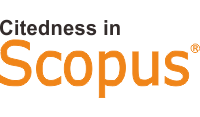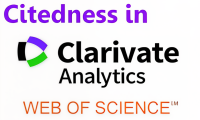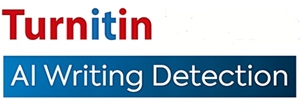Zakat and Waqf Managament in Indonesia and Pakistan: A Comparative Study
DOI:
https://doi.org/10.46870/milkiyah.v3i1.805Keywords:
Funds, Zakat, Waqf, Comparative StudyAbstract
Zakat and waqf should be managed well so that they benefit society. This comparative study aims to analyse and compare the management practices of zakat and waqf in Indonesia and Pakistan. This study employs descriptive-comparative approach by analysing relevant literature, policies, and institutional frameworks in the management of zakat and waqf between Indonesia and Pakistan. Findings of this study reveal that both countries focus on strengthening transparency and accountability in the collection, distribution, and utilization of zakat and waqf funds. Nevertheless, there is a need for increased collaboration and coordination between government institutions, non-governmental organizations, and other stakeholders involved in zakat and waqf management in Indonesia and Pakistan. This study is significant because it has the potential to inform policies and strategies that can maximise the positive impact of zakat and waqf funds, resulting in more inclusive and equitable societies in both countries.
References
Abbas, A. (2020). Does Zakat Signal the Firm Value? International Journal of Zakat, 5(1), 55- 66. https://doi.org/10.37706/ijaz.v5i1.205
Abbas, A., & Hannani, H. (2021). An Analysis of Accounting Practices for Zakat, Infaq, and Sadaqah in Lembaga Amil Zakat, Infaq and Sadaqah Nahdatul Ulama (LAZISNU) Parepare, Indonesia: Standardization and Proposed Solutions. Islamic Banking and Finance Review, 8(2), 36-54. https://doi.org/10.32350/ibfr.82.02
Adrianna, Syariefur Rakhmat, I. S. B. (2022). Pengelolaan Zakat dan Wakaf di Malaysia dan Turki : Studi Komparatif. Iltizam Journal of Shariah Economic Research, 6(1), 48–58. https://doi.org/https://doi.org/10.30631/iltizam.v6i1
Afrina, D. (2018). Manajemen Zakat di Indonesia Sebagai Pemberdayaan Ekonomi Umat EkBis: Jurnal Ekonomi dan Bisnis, 2(2), 201–212. https://doi.org/10.14421/EkBis.2018.2.2.1136
Atabik, A. (2015). Manajemen Pengelolaan Zakat yang Efektif di Era Kontemporer. ZISWAF : Jurnal Zakat dan Wakaf, 2(1), 40–62.
Alam, A. (2018). Permasalahan dan solusi pengelolaan zakat di Indonesia. Jurnal Manajemen, 9(2), 128. https://doi.org/10.32832/jm-uika.v9i2.1533
Annur, C. M. (2023). 10 Negara dengan Populasi Muslim Terbanyak Dunia 2023, Indonesia Memimpin! Databok. https://databoks.katadata.co.id/datapublish/2023/10/19/10-negara-dengan-populasi-muslim-terbanyak-dunia-2023-indonesia-memimpin
Ardani, M., & Pujiyono, A. (2021). Priority Problems and Solutions in Formulating Strategies to Optimize Zakat Collection in Indonesia: ANP Approach. International Journal of Zakat, 6(3), 69–86. https://doi.org/https://doi.org/10.37706/ijaz.v6i3.290
Bariyah, N. O. Nurul. (2016). The Dynamics of Legal Aspects of Zakat and Waqf in Indonesia. Ahkam: Jurnal Ilmu Syariah, 16(2), 197–212. https://doi.org/10.15408/ajis.v16i2.4450
Dulkiah, M. (2016). The Roles of Amil Zakat Institutions (LAZ) in Empowering Poor Communities Through Micro Business Development (Case Study in West Java Region). Jurnal Ilmu Sosial dan Ilmu Politik, 6(2), 30–54.
Febriansyah, S., Wahyuni, S., Tinggi, S., Ekonomi, I., Persada, B., Tinggi, S., & Ekonomi, I. (2021). Zakat Management : Study the History of Islamic. … : Journal of Islamic Civilization …, 19(1), 1–23.
Febriansyah, S. W. (2021). Zakat Management: Study the Historyof Islamic Philanthropy. THARWAH: Journal of Islamic Civilization and Thought, 1(2), 114–128. https://doi.org/https://doi.org/10.47766/tharwah.v1i2.13
Halimatusa’diyah, I. (2015). Zakat and Social Protection: The Relationship Between Socio-religious CSOs and the Government in Indonesia. Journal of Civil Society, 11(1), 79–99. https://doi.org/10.1080/17448689.2015.1019181
Hamzah, M. M. (2018). Manajemen Pengelolaan Zakat di Bangladesh. IJIEB: Indonesian Journal of Islamic Economics and Business, 3(2), 46–57.
Ibrahim, S. M. (2020). Non - governmental Organization ( NGO ) Zakat Management Model : An Exposition. International Journal of Interdisciplinary Research and Innovations, 8(3), 36–39.
Jamaluddin, M.N. (2021). Wujud Islam Rahmatan Lil `Alamin Dalam Kehidupan Berbangsa di Indonesia. ADLIYA: Jurnal Hukum dan Kemanusiaan. 14(2), 271-394. https://doi.org/10.5281/zenodo.2649799)
Lessy, Z. (2009). Zakat (Alms-Giving) Management In Indonesia: Whose Job Should It Be? La_Riba, 3(1), 106–119. https://doi.org/10.20885/lariba.vol3.iss1.art8
Lorenz, C. (2013). Munich Personal RePEc Archive Informal taxation systems-Zakat and Ushr in Pakistan as example for the relevance of parallel/semi-public dues. MPRA Paper, 51138.
Madni, H. (2022). Waqf Properties Act 2020 and the Constitution of Pakistan A Critical Study. Journal of Islamic Thought and Civilization, 12(1), 322–332. https://doi.org/10.32350/jitc.121.20
Mahmood, J., Asif, M., Imran, A., Aziz, R., & I-Azam, R. (2011). Determinants of Business Sucess of Small and Medium Enterprises. International Journal of Business and Social Science, 2(20), 274–280.
Makhmudah, K. (2022). Jurnal Ekonomika dan Bisnis Islam E-ISSN: 2686-620X Halaman 247-258. Jurnal Ekonomika dan Bisnis Islam, 5(3), 247–258. https://doi.org/https://doi.org/10.26740/jekobi.v5n3.p168-179
Muin, R. (2020). Manajemen Pengelolaan Zakat. Gowa: Pusaka Almaida
Najiyah, F., & Febriandika, N. R. (2019). The Role of Government in the Zakat Management: The Implementation of A Centralized and Decentralized Approach (Comparative Study in Indonesia and Malaysia). 101(Iconies 2018), 290–292. https://doi.org/10.2991/iconies-18.2019.57
Nasution, A. M. (2018). Batasan Mengambil Keuntungan Menurut Hukum Islam. Jurnal el-Qanuniy: Jurnal Ilmu-Ilmu Kesyariahan dan Pranata Sosial, 4(1), 88–100. https://doi.org/10.24952/el-qonuniy.v4i1.1829
Purkon, A. (2022). Regulations of Waqf Management in Contemporary Indonesia. Jurnal Ilmiah Ekonomi Islam, 8(02), 1237–1246. https://doi.org/https://doi.org/ 10.29040/jiei.v8i2.5326.
Purwatiningsih, A. P., & Yahya, M. (2020). Why Zakat Collection in Indonesia is Not As Effective As it is in Malaysia. Jurnal Penelitian, 14(1), 23. https://doi.org/10.21043/jp.v14i1.6785
Qardawi, Y. (1993). Hukum Zakat. Bogor: Pustaka Litera Antanusa.
Turki: Studi Komparatif. Iltizam Journal of Shariah Economic Research, 6(1), 48–58.
Ridho, M. Taufik. (2006). Pengelolaan Zakat di Negara-Negara Islam, dalam Kuntarno Noor Aflah (editor). Zakat dan Peran Negara. Jakarta: FO
Ridwan, M., Asnawi, N., & Sutikno. (2019). Zakat collection and distribution system and its impact on the economy of Indonesia. Uncertain Supply Chain Management, 7(4), 589–598. https://doi.org/10.5267/j.uscm.2019.6.001
Rizal, A., Fauziyah, N., … A. M.-J. of I., & 2020, U. (2020). Integrating Zakah and Waqf for Developing Islamic Economic Boarding School (IEBS) Project in Indonesia. Ejournal.Unida.Gontor.Ac.Id, 03(02), 2655–335. https://doi.org/https://doi.org/10.21111/jiep.v3i02.4577
Rosadi, A., Effendi, D., & Busro. (2013). The Development of Waqf Management Trought Waqf Act in Indonesia (Note on Republic of Indonesia Act Number 41 of 2004 on Waqf). Journal of Institutional Economics, 9(4), 469–490.
Sabiq, S. (2008) Terjemahan Fikih Sunnah. Cakrawala Publishing. https://rumahfiqih.com/pdf/x.php?id=3&fiqih-waqaf.htm).
Sadeq. (1994). A Survei of Institution of Zakah: Issue, Theorities and Administration, Jeddah: IRTI-IDB.
Salam, Gagaring Pagalung, Muslimim Kara, Heri Irawan, S. H. W. (2022). Filosofi dan Manajemen Ekonomi Zakat dan Wakaf di Indonesia. Adz Dzahab Jurnal Ekonomi dan Bisnis Islam, 7(2), 210–226. https://doi.org/https://doi.org/10.47435/adz-dzahab.v7i2
Sheikh, A., Jabeen, Z., & Ismail, M. (2021). Zakat Collection and Disbursement: The Case of Pakistan. Uochjrs, 5(1), 88–111 https://doi.org/10.33195/journal.v5i1.
Ubaidillah, U., Masyhuri, M., & Wahyuni, N. (2021). Cash Waqf Linked Sukuk (CWLS): An Alternative Instrument for Infrastructure Financing. Indonesian Interdisciplinary Journal of Sharia Economics (IIJSE), 4(1), 35–49. https://doi.org/10.31538/iijse.v4i1.1473
Downloads
Published
How to Cite
Issue
Section
License
Copyright (c) 2024 Milkiyah: Jurnal Hukum Ekonomi Syariah

This work is licensed under a Creative Commons Attribution-NonCommercial 4.0 International License.

















